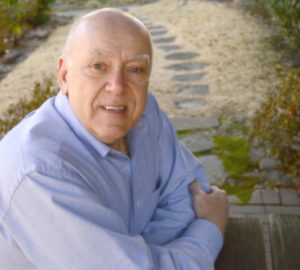 Richard Kohrs has been the Development Specialist at the Church Health Center in Memphis, TN since 2008. The Church Health Center is a faith-based healthcare organization that seeks to help people care for their bodies and spirits, serving especially the uninsured and under-insured. It’s a mission Kohrs has strongly believed in since watching the Church Health Center grow from its very beginning. “I thought that the Church Health Center was doing great work and really having an impact on the lives of some very special citizens. It was a dream come true when I had the opportunity to join that team.”
Richard Kohrs has been the Development Specialist at the Church Health Center in Memphis, TN since 2008. The Church Health Center is a faith-based healthcare organization that seeks to help people care for their bodies and spirits, serving especially the uninsured and under-insured. It’s a mission Kohrs has strongly believed in since watching the Church Health Center grow from its very beginning. “I thought that the Church Health Center was doing great work and really having an impact on the lives of some very special citizens. It was a dream come true when I had the opportunity to join that team.”
The Church Health Center established its Legacy Society within ten years of its 1987 founding. Early on, founder and CEO Dr. Scott Morris consulted with his friend Robert F. Sharpe, Sr., who founded Sharpe Group in 1963. Sharpe encouraged the Center to actively seek bequests and other gifts and worked closely with Morris and his team to get the Society started.
“We have grown slowly but steadily over the years,” said Kohrs. “Since 2013 we have added 31 new members. Today we work harder than ever at inviting donors to consider a gift in their will or other estate plans that will fund the work of the Church Health Center in perpetuity.” Currently the Legacy Society has 81 known members.
It is not uncommon to hear comments from Legacy Society members such as this recent observation: “I am impressed with the kindness, understanding and respect with which each patient is treated, and I am happy knowing that, as a member of the Legacy Society, I am helping to provide healthcare for those who need it most.”
Benefits of membership in the Society include being listed in their quarterly newsletter, “Answering the Call,” an invitation to an annual Legacy Society Brunch, birthday and anniversary recognitions and an engraved plaque.
Sharpe Group Chief Operating Officer Barlow Mann believes the Church Health Center’s Legacy Society is a good example of a successful planned giving program and is proud of Sharpe’s role in helping it realize its planned gift potential. “We have found that donor recognition societies are one of the best tools for planned giving development professionals to cultivate and steward planned gift donors. Most nonprofit executives know how important it is to thank donors. It can be more challenging to thank donors who are planning a gift at some future time, but it is equally important in order to insure maximum future funding.”
Surprise gifts
Most Legacy Society members also continue to give annual gifts, but Kohrs noted that many of the Center’s legacy gifts come as a complete surprise from those who are not only not known to be members of the Society, but also have never made a lifetime gift.
Recently, the Church Health Center received a very large bequest. This bequest was interesting not only because of the relatively large size, but that it also came from a donor where there had been no indication a bequest had been provided for until just prior to her passing. In this case, while the bequest intention was only revealed just prior to the death of the donor, she had given generously to the Church Health Center in the past.
Another thing that set this gift apart was the speed with which the Church Health Center received the gift upon the death of the donor. Bequest gifts can sometimes take a year or more to be received by the charity. In this case, the donor’s husband reached out to the Church Health Center shortly before his wife’s death to inform them that she had remembered them with a “substantial gift” in her will, and that, as executor, he would need some technical information to work with the lawyer/advisor. He wanted to make sure the Church Health Center would receive all of the money bequeathed as quickly as possible.
A few weeks after being informed of the donor’s passing, Kohrs received an email requesting necessary information so that the gift could be wired to the Center. Less than a month passed between the first contact and the money’s deposit in the bank account.
“As it turns out,” said Kohrs, “the donor had visited four years earlier and had been given a tour of the clinic. Subsequently, she made three annual gifts of $20,000, but we had no idea that she had remembered us in her will until her husband reached out.”
While the Church Health Center did not have the chance to recognize this particular donor with membership in the Legacy Society, having an active Legacy Society offers the Center an opportunity to strengthen and perpetuate important bonds and relationships with its most loyal supporters.
See “The Importance of Planned Giving Recognition Societies” for more information on some dos and don’ts of managing your own legacy society. ■

